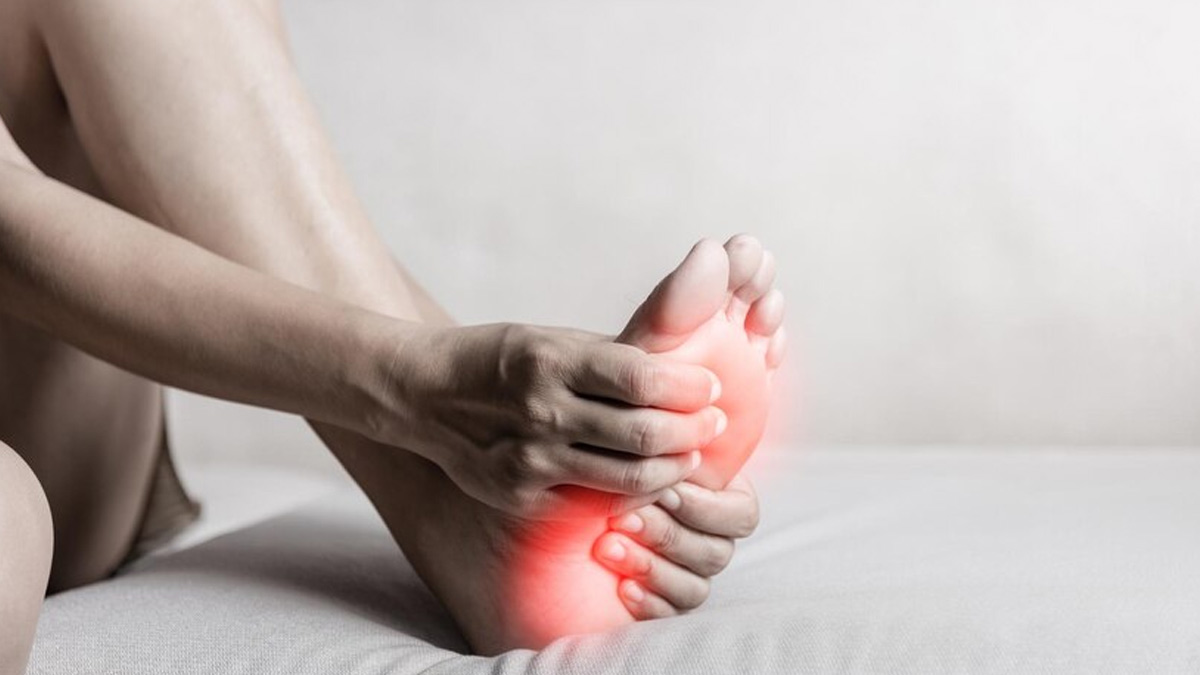
Waking up with numbness or tingling sensations in your limbs can be baffling and unpleasant. This symptom, sometimes known as "sleeping limb" or "pins and needles," is frequently harmless; nonetheless, knowing the causes of numbness when sleeping might throw light on potential causes and relevant treatments.
Table of Content:-
Pressure on Nerves
One of the most common reasons for numbness during sleep is the compression of nerves. Incorrect sleeping positions or prolonged pressure on a particular body part, such as resting an arm under the head, can lead to reduced blood flow and temporary compression of nerves, causing numbness.

Also read: The Nightly Workout Dilemma: Expert Answers If Exercising Before Bed Affects Your Sleep
Poor Sleeping Posture
Maintaining an awkward or sustained posture during sleep can contribute to numbness. For example, sleeping with the head at an odd angle or the arms positioned in a way that restricts blood flow may lead to temporary nerve compression.
Circulation Issues
Reduced blood circulation to a specific body part, often due to tight clothing or improper positioning, can result in numbness. Circulatory problems during sleep can be more pronounced in people with conditions like diabetes or peripheral artery disease.
Also read: The Nightly Workout Dilemma: Expert Answers If Exercising Before Bed Affects Your Sleep
Neurological Conditions
In some cases, underlying neurological conditions, such as nerve impingement or pinched nerves, can contribute to numbness during sleep. Conditions like carpal tunnel syndrome or sciatica may manifest as tingling sensations in specific areas.
Pressure on Blood Vessels
Compression of blood vessels can impede blood flow and contribute to numbness. This can occur when body weight or pressure from the sleeping surface restricts proper circulation.
Sleeping on an Extremity
Occasionally, numbness occurs when a person inadvertently sleeps on their arm or leg, leading to a temporary disruption of nerve signals. This is often referred to as "dead arm" or "dead leg."

Temperature
Extreme temperatures, either too hot or too cold, can affect nerve function during sleep. Cold temperatures can constrict blood vessels, while excessive heat may lead to sweating and dehydration, both of which can contribute to numbness.
Medication Side Effects
Certain medications may have side effects that affect nerve function or circulation, potentially leading to numbness during sleep. Consulting a healthcare professional about medication-related symptoms is advisable.
Remedies and Prevention
Adjust Sleeping Positions
Be mindful of sleeping positions to avoid prolonged pressure on specific body parts. Experimenting with pillows or adjusting sleeping posture can help alleviate numbness.
Maintain Proper Sleep Environment
Ensure a comfortable sleep environment with appropriate room temperature and bedding to prevent temperature-related numbness.
Stay Active
Regular physical activity promotes good circulation and can help prevent issues related to poor blood flow that may contribute to numbness during sleep.
Also read: Acute Sleep Apnoea: What Is it? Know The Initial Symptoms
Address Underlying Conditions
If the numbness persists or is accompanied by discomfort, it is critical to get medical attention to diagnose and treat any underlying medical disorders that are causing the symptoms.
While numbness during sleep is usually harmless and persistent symptoms should be investigated. Understanding the numerous elements that lead to numbness when sleeping can help people make changes to their sleeping habits, seek appropriate medical care, and have a good night's sleep.
Also watch this video
How we keep this article up to date:
We work with experts and keep a close eye on the latest in health and wellness. Whenever there is a new research or helpful information, we update our articles with accurate and useful advice.
Current Version